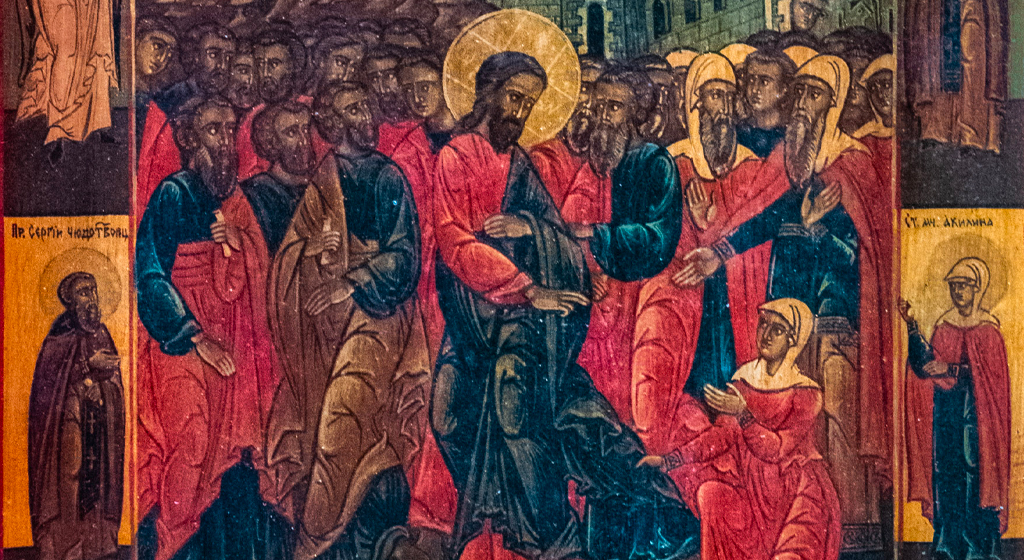Memory of the Poor
Reading of the Word of God
Alleluia, alleluia, alleluia
This is the Gospel of the poor,
liberation for the imprisoned,
sight for the blind,
freedom for the oppressed.
Alleluia, alleluia, alleluia
James 3,13-18
Anyone who is wise or understanding among you should from a good life give evidence of deeds done in the gentleness of wisdom. But if at heart you have the bitterness of jealousy, or selfish ambition, do not be boastful or hide the truth with lies; this is not the wisdom that comes from above, but earthly, human and devilish. Wherever there are jealousy and ambition, there are also disharmony and wickedness of every kind; whereas the wisdom that comes down from above is essentially something pure; it is also peaceable, kindly and considerate; it is full of mercy and shows itself by doing good; nor is there any trace of partiality or hypocrisy in it. The peace sown by peacemakers brings a harvest of justice.
Alleluia, alleluia, alleluia
The Son of Man came to serve,
whoever wants to be great
should become servant of all.
Alleluia, alleluia, alleluia
"Who is wise and understanding among you?" The Word of God always questions those who listen, although not always so directly as James does. He invites readers to examine themselves and their behaviours in the context of wisdom. True wisdom is judged by action. Above all whoever has responsibility must demonstrate wisdom in how they act, without the security which comes from their role. The apostle emphasizes that it is not carnal wisdom which makes the lives of single believers and of the community nice and orderly. In fact that carnal wisdom is rooted in the "devilish" spirit which divides brothers and sisters being made up of envy and selfish ambition. "Envy and selfish ambition" often tie up our society and also Christian communities. The Venerable Bede wrote: "Paul said it too: carnal man cannot understand the things of the Spirit of God (1 Cor 2:14). A litigious and prideful wisdom is justly described as earthly, animal and diabolic, because ever since the soul has sought earthly glory it is without spiritual grace and thinks only of that which comes natural to it since the original sin." Instead "the wisdom which comes from heaven," that is from God, is different. James lists seven characteristics of this wisdom according to God: it is pure, peaceful, gentle, willing to yield, full of mercy and good fruits, and without a trace of partiality or hypocrisy. The first characteristic "pure," to which also "sincere" is referred at the end, indicates loyalty toward others, the opposite of which are evil-provoking lies. The other adjectives describe a way of living with others that is characterized by sincerity and love. Only by acting with this perspective can we live in peace and produce justice. James helps us understand that wisdom comes from on high, something which remains incomprehensible to learned one of this world and it is revealed to the simple, because it is wisdom of the heart. Along these same lines Paul exhorts the Corinthians: "Do not deceive yourselves. If you think that you are wise in this age, you should become fools so that you may become wise" (1Cor 3:18).
